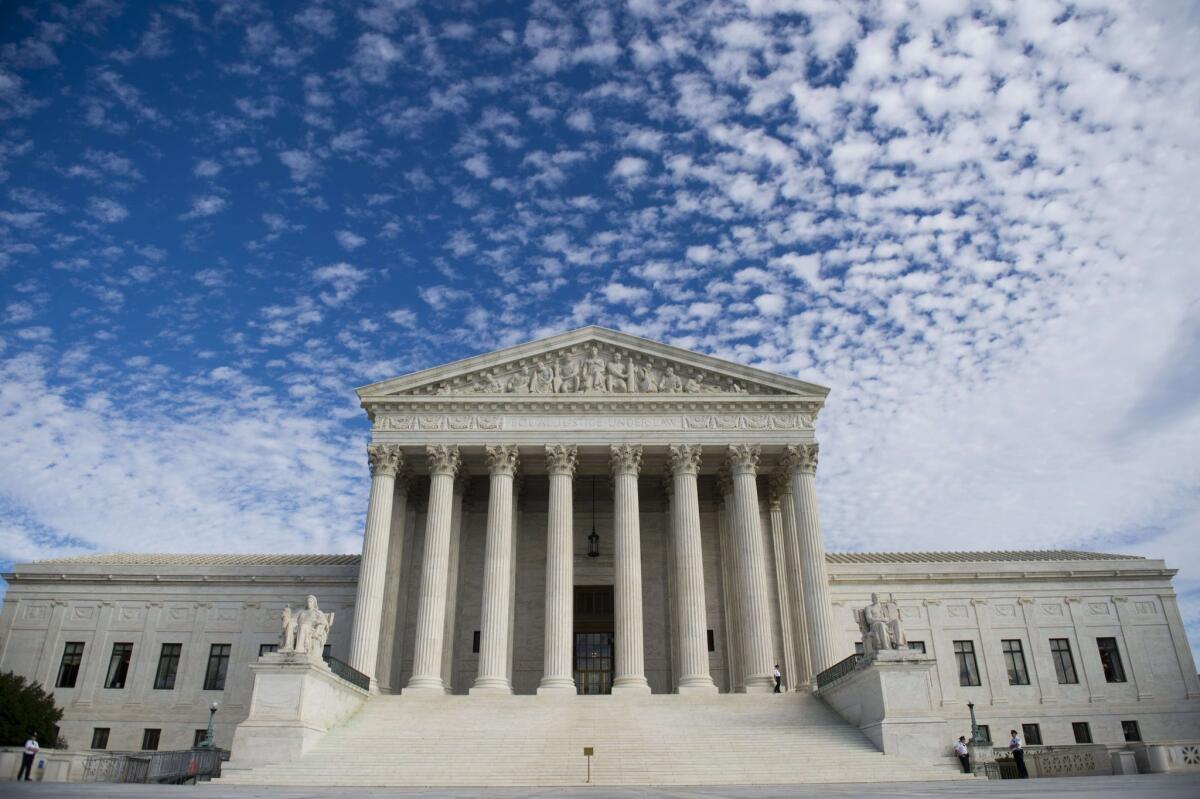Supreme Court upholds California police search based on 911 tip

The U.S. Supreme Court upheld the authority of police officers to stop cars and question their drivers based on anonymous tips to hotlines.
- Share via
WASHINGTON — The Supreme Court on Tuesday upheld the authority of police officers to stop cars and question drivers based on anonymous tips to hotlines.
In a 5-4 decision, the justices ruled that such stops do not amount to an unreasonable search or seizure, even if the arresting officer did not observe the vehicle speeding or swerving.
The decision affirms a ruling of the California courts.
The case began in August 2008 when a 911 dispatch team in Mendocino County received a midafternoon report that a pickup truck had forced another vehicle off the road. Though the caller did not give his or her name, the report included a detailed description of the truck, including the license plate number.
Responding to the dispatch, an officer saw a truck that fit the description. After stopping it, he found 30 pounds of marijuana in the truck bed. Two men, Lorenzo Navarette and Jose Navarette, were arrested and later convicted of trafficking marijuana.
They appealed and argued that the stop and search violated their rights under the 4th Amendment.
In the past, the court had said that police officers could not rely on an anonymous tip to stop and search a pedestrian. The court worried that anonymous callers could unfairly target people for embarrassing searches.
But in Tuesday’s decision, the court majority agreed that police have “reasonable suspicion” to stop a vehicle if they receive a report that it was speeding, swerving or, in this instance, driving another car off the road.
The case split the court along the usual ideological lines, with two significant switches. Justice Stephen G. Breyer joined the opinion written by Justice Clarence Thomas to form the majority, while Justice Antonin Scalia dissented.
The same lineup last summer decided an important case about DNA testing of arrestees, with Breyer in the majority and Scalia in dissent.
The case was Navarette vs. California.
Twitter: @davidgsavage
More to Read
Sign up for Essential California
The most important California stories and recommendations in your inbox every morning.
You may occasionally receive promotional content from the Los Angeles Times.











